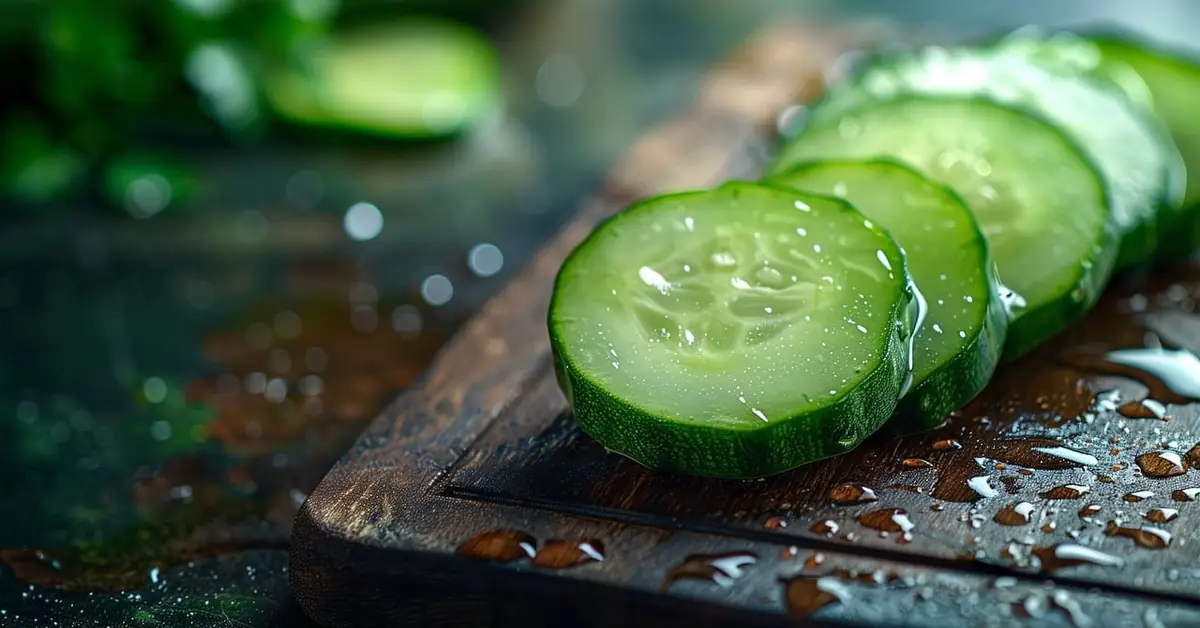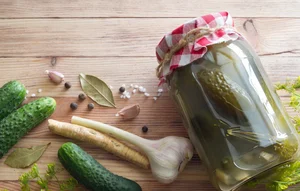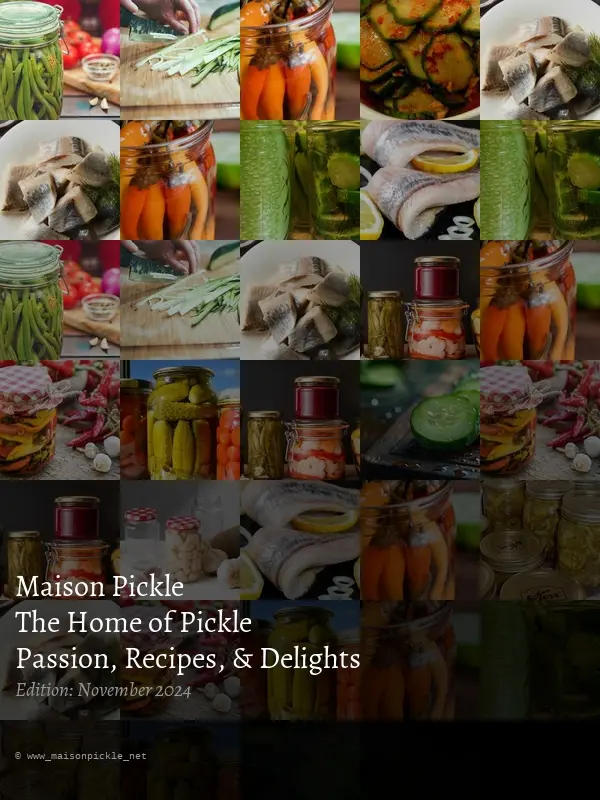What is Pickled Cucumber?
Pickled cucumber, commonly known as pickles, refers to cucumbers that have been preserved through a process of fermentation or bringing in a solution typically containing vinegar, salt, and various spices. This method not only enhances the flavor but also extends the shelf life of cucumbers. The pickling process can vary significantly, with some methods involving natural fermentation, while others use vinegar for quicker results. Its tangy flavor and crunchy texture characterizes the end product, making it a popular addition to various dishes.
Culinary Uses of Pickled Cucumber
Pickled cucumbers are incredibly versatile in culinary applications. Here are some common uses:
- Condiment: They are often used as a topping for burgers, sandwiches, and hot dogs.
- Salads: Chopped pickles can enhance salads, providing a zesty contrast to other ingredients.
- Snacks: Pickles are enjoyed on their own as a crunchy snack or appetizer.
- Relishes: They can be diced and mixed with other ingredients to create relishes for various dishes.
- Side Dishes: Pickles are frequently served alongside rich or fatty foods to balance flavors.
Nutritional Benefits
Pickled cucumbers offer several nutritional advantages:
- Low in Calories: They are low-calorie snacks, making them suitable for weight management.
- Source of probiotics: Naturally, fermented pickles contain beneficial bacteria that promote gut health.
- Rich in vitamins: Pickles provide vitamins A and K, essential for vision and bone health, respectively.
- Hydration: because of their high water content, they contribute to hydration.
Health Benefits
Besides their nutritional profile, pickled cucumbers may offer various health benefits:
- Digestive Health: The probiotics found in fermented pickles can improve digestion and enhance gut flora.
- Antioxidant Properties: They contain antioxidants that help combat oxidative stress in the body.
- Blood Sugar Control: Some studies suggest that vinegar-based pickles may help regulate blood sugar levels after meals.
- Electrolyte Balance: The sodium content in pickles can help maintain electrolyte balance, especially after exercise.
Techniques to Prepare Pickled Cucumbers
1. Quick Pickling
Description: A fast method that uses a simple brine of vinegar, water, salt, and sugar.
Process:
- Slice cucumbers and pack them into jars.
- Pour a warm or cold brine over the cucumbers.
- Refrigerate for a few hours to a couple of days before consuming.
Example Ingredients: Vinegar (any type), water, salt, sugar, and optional aromatics like dill or chili flakes.
2. Salt Brine Method
Description: Uses a saltwater solution instead of vinegar for a milder flavor.
Process:
- Pack cucumbers into jars with spices and cover them with a saltwater solution.
- Leave at room temperature for about 48 hours before refrigerating.
3. Hot Vinegar Brine Method
Description: A classic method using hot vinegar to enhance flavor absorption.
Process:
- Pack cucumbers into sterilized jars with spices.
- Pour boiling vinegar brine over the cucumbers and seal the jars.
- Cool before refrigerating or storing.
4. Fermentation Method
Description: A traditional technique that uses natural fermentation for flavor development.
Process:
- Submerge cucumbers in a saltwater brine and leave at room temperature to ferment for several days or weeks.
5. Bread-and-Butter Pickles
Description: A sweet variety that combines cucumbers with onions in a sugary vinegar brine.
Process:
- Slice cucumbers and onions, mix with a sweet brine made from vinegar, sugar, and spices, then process in jars.
6. Use of Calcium Chloride
Description: Enhances crispness without traditional firming agents.
Process:
- Add calcium chloride to jars during packing to maintain texture.
7. Lemon Juice Method
Description: An alternative pickling method using lemon juice instead of vinegar.
Process:
- Pack cucumbers with dill and garlic, cover with lemon juice and water, then refrigerate.
These techniques provide various options for home cooks to prepare pickled cucumbers, catering to different tastes and preferences while allowing for both quick preparation and traditional methods.
Other Important Points
- Varieties of Pickles: There are many varieties of pickled cucumbers worldwide, such as dill pickles, sweet pickles, and bread-and-butter pickles.
- Cultural Significance: In many cultures, pickling is not just a preservation method, but also an integral part of culinary traditions.
- Storage Tips: Properly sealed jars can last several months in the refrigerator; however, once opened, they should be consumed within a few weeks for optimal freshness.
In summary, pickled cucumbers are not only a delicious addition to many meals but also offer many health benefits. Whether enjoyed as a snack or incorporated into recipes, they remain a staple in kitchens around the world.




